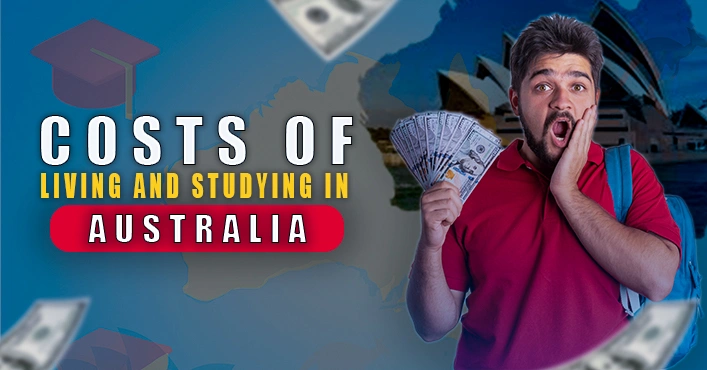
Considering studying abroad? Australia offers globally ranked universities, an excellent educational system, and a top-tier lifestyle, making it a prime choice for international students. It’s also home to some of the most well-known cities, including Melbourne, Perth, and Sydney. On the flip side, if you are considering a trip to Australia, it is imperative to understand the actual expenses linked to studying there. Such expenses comprise the tuition, living expenses, and other concealed charges that students tend to overlook. Being aware of these expenses in advance enables you to make a sensible budget and sidestep undue financial worries.
Tuition Fees Australia
For international students, tuition is the single biggest expenditure, and as such, the amount you’ll need to budget for is dependent on your level of study, the institution you attend, and the particular course you take.
- Undergraduate studies: Generally speaking, tuition fees for bachelor’s programmes run from AUD 20,000 to AUD 45,000 per year. Programs in arts and humanities tend to be on the lower end of the scale, whereas professional programs such as medicine, engineering, and even law tend to be on the higher end.
- Postgraduate studies: The cost of a master’s degree usually falls between AUD 22,000 and AUD 50,000 per year. MBA programmes are generally the costliest, as is the case with highly ranked business schools.
- Doctoral programs (PhD): Depending on the area of study, fees for PhD students range from AUD 18,000 to AUD 42,000 per year.
Furthermore, tuition fees can be greatly lowered through scholarships, bursaries, or fee waivers, which, as far as I am aware, some universities extend to international students.
Living Costs in Australia
The Australian Government expects international students to prove that they have ample funding for living expenses. The living costs per year are estimated to be around AUD 24,505 (2025 figure); however, the amount is largely premised on the lifestyle and the city one stays in.
Here is a monthly breakdown of living expenses:
-
Accommodation: AUD 450 – 1,200 (shared apartments, university hostels, or private rentals)
-
Food and groceries: AUD 300 – 600
-
Transport: AUD 100 – 200 (public transport; some cities provide student discounts)
-
Utilities and internet: AUD 100 – 200
-
Entertainment and personal expenses: AUD 150 – 400
Sydney and Melbourne, being larger cities, tend to be more expensive, whilst smaller cities like Adelaide, Hobart, and Perth are more budget-friendly.
Health Insurance and Medical Costs
Overseas Student Health Cover (OSHC) is mandatory for international students. As a requirement for their student visa, students need to purchase it at an estimated cost of AUD 500 to AUD 700 per year for individuals, depending on the insurance provider. This cover makes it possible for students to utilise healthcare facilities while in the country.
Concealed and Unexpected Costs
Books and study materials – Supplies for a course of study can require an annual expenditure of anywhere between AUD 500 and AUD 1,000. Some students try to defray the costs by purchasing second-hand books or using digital materials.
Student services and amenities fee – Many universities charge a student services fee of up to AUD 315 annually for services like libraries, sports facilities, and counselling.
Visa fee – All students must pay a one-time fee of AUD 710 for a student visa (subclass 500).
Wages for Part-time Jobs – Even though overseas students are allowed to work for part-time jobs (not exceeding 48 hours per 2 weeks), certain jobs may require you to buy a uniform, ferry, or undergo training.
Travel and Leisure – A number of students want to check out the different cities and the vast natural beauty of Australia. If not planned well, travel, tours, and holiday trips can be quite expensive.
Managing Costs as a Student
Conclusion
Studying in Australia comes with financial demands, as the return offers a priceless opportunity and experience. Tuition fees depend on the course enrolled for and the institution, while living expenses vary based on the city and lifestyle. There are additional fees for health coverage, books, and visas. Effective planning of finances will enable students to fully enjoy both scholastic and recreational ventures in Australia.
